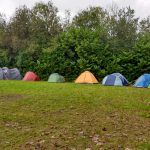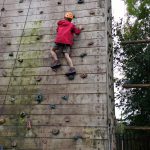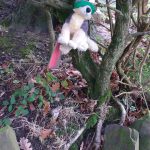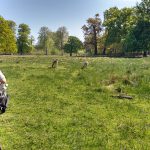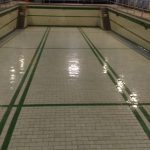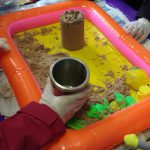In a break from convention, here’s a more personal post about why I think volunteering has had a positive impact on my PhD life. In my spare time, I’m an assistant cub scout at 23rd Manchester Scout Group and have been since April 2016. I was involved in scouting as a child for almost 10 years but hadn’t considered becoming a leader. That was until I met Hannah who was doing her masters project in my lab. She convinced me to come along to her cub pack (8-10 ½ year olds) to help run activities for their scientist badge. She then didn’t let me leave! Well, that’s not exactly true. In all honesty, I didn’t need any persuading to keep coming back. I think I hadn’t realised how much I missed scouting.
For anybody not familiar with scouting, it’s a global youth movement first founded in 1907 by Sir Robert Baden Powell. In the UK, the Scout Association is the largest youth organisation giving over 450,000 young people aged 6-24 the opportunity to take part in adventurous outdoor activities, learn new skills, form friendships and make a difference in their communities. At our weekly meetings we tend to play games and do a range of activities including painting, baking, quizzes and discussions. This term for example, we have started working towards the chef badge by baking bread and as part of the artist badge, we’re doing a big craft project involving making hand puppets, writing and filming puppet shows. The kids mostly just think they’re having fun but they’re really learning a lot of important life skills such as leadership, teamwork, independence, responsibility and communication. To motivate and reward them we hand out badges. So many badges! Our group scout leader nearly has a fit every time we put in an order. The highest award cubs can achieve is the Chief Scout Silver Award. We recently awarded one of these and it was probably my proudest moment of being a leader. She was ecstatic, her dad was beaming and I was nearly welling up. The award is really challenging, usually taking the majority of their time in cubs to achieve, and it was definitely harder for her than most due to her autism. It’s been incredibly rewarding to see her confidence grow over the months. When she first joined, she was quiet and often reluctant to join in with games. Now, she’s made friends, is eager to participate in almost everything and loves going on camp.
Speaking of camps, I’m insanely proud of the spy-themed camp I helped plan earlier this year. We played stealth-based games, made disguises and did some codebreaking. With the help of Secret Agent Purple Moose (my fiancé), I even filmed two hilarious but cringey briefing videos. On the Sunday morning we played a big manhunt game to rescue the pack mascot who’d been kidnapped by the evil Gecko (one of our leader friends from another group). I planned the kind of camp I would have really enjoyed at their ages and they had such a great time. One cub hugged me at one point and said, “This is the best camp ever!”. We told them everything was “highly classified” so they couldn’t tell any of the other scouts what we were doing. Having that shared secret really brought them together and it’s the best I’ve ever seen them work as a team.
I’ve been thinking about this quite a bit lately and I really feel like volunteering is making me a better scientist for a couple of reasons. I’ve noticed particularly in the past few months when I’ve been taking on more responsibility for planning activities and camps that I’m more confident and assertive. This means I find it easier to go and talk to people at conferences/events and feel less anxious about defending my thesis later this year. Before I became a leader I found engaging with young people challenging and often awkward but now I feel much more at ease now. It’s definitely helped me with one of my other interests, public engagement.
I’m have to admit that planning our meetings and camps is time-consuming and there are weeks when it’s a struggle to fit it around my busy schedule. I actually did most of the spy camp planning on a Sunday afternoon/evening after being in the lab the rest of the weekend. It never really feels like a drag though. I enjoy researching quiz questions and trying out craft activities. The hard work definitely pays off when I see how much they enjoy what we’ve planned. I also think scouting makes me a more productive in the lab. On the evenings when we have our meetings, I tend to be better at prioritising the most important tasks, I’m more motivated to come in earlier to get my work done and get less distracted by tea breaks, emails etc.
Most importantly of all, I’m much happier. Being a leader gives me the opportunity to switch off from my PhD and do something completely different for a couple of hours a week. Having a pack meeting to look forward to has helped me get through some stressful and busy parts of my PhD and a lot of the time, they are the highlight of my week. Just earlier this month, I taught a cub how to flip a pancake for the first time. This might seem like a small thing but he was so excited.
As I’m writing this I’m actually on the way to Hannah’s house to plan our summer camp. It’s going to be fantasy themed because we’re massive nerds.

